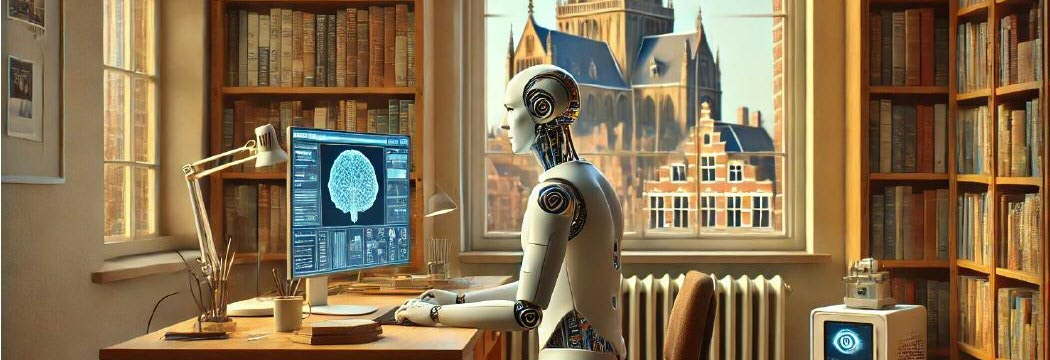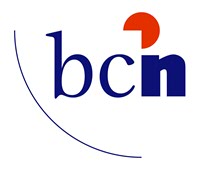BCN Symposium 'Brains on AI: How AI changes the brain and brain research'

Artificial Intelligence has a large impact on society, but also on science. It provides us with new tools for research in all fields, but also requires input from science to develop. Research on cognition and the brain has a special place in this, because AI research itself is heavily inspired by what we know of human intelligence.
In the BCN Symposium 'Brains on AI', we will explore how AI can advance research of the brain and behavior by providing new tools to analyze the vast amounts of data we have regularly collect, irrespective of whether this is from animal studies, neuroscience studies, or complex behavioral experiments. Moreover, we will feature presentations that show how AI can support the learning brain. This can be either by using the knowledge of cognition augmented by AI techniques to provide learners with personalized materials, or by exploring how large-language models can take over some of the tasks of the teacher.
We are pleased to announce that the symposium is fully booked. If you would like more information, please contact bcn umcg.nl.
Program
08:30 – 09.00 Registration with coffee/tea
09:00 – 09:05 Opening Theme: Learning more about the brain using AI or vice versa
09:05 – 09:35 Dr. Catherine Sibert: Theories of Minds: Connecting Cognitive Architecture Models to Brain Imaging Data
09:35 – 10:05 Dr. Leendert van Maanen: Rethinking the Speed-Accuracy Trade-Off: A New Cognitive Operation in the Decision-Making Process
10:05 – 10:35 Dr. Umut Güçlü: Deep Generative Models for Neural Decoding of Visual Perception
10:35 – 11:05 Dr. Micha Heilbron: LLMs as a challenge and an opportunity for cognitive (neuro)science
11:05 – 11:30 Coffee break
Theme: UG applications of AI for BCN
11:30 – 12:00 Drs. Koen Freerks: From Posture to Behaviour: Applying AI to Behavioural Tracking
12:00 – 12.30 Dr. Sebastiaan Mathot: Developing custom teaching tools that use large language models
12:30 – 13:30 Lunch break Theme: AI for Education Cognitive AI
13:30 – 14:00 Prof. dr. Niels Taatgen: Skills: the building blocks of human intelligence
14:00 – 14:30 Prof. dr. Hedderik van Rijn: How Cognitive AI Improves Passing Rates and Grades in Academic Courses Theme: AI for Education LLM
14:30 – 15:00 Dr. Burcu Arslan: Personalizing Digital Learning and Assessment with Generative AI: Opportunities, Challenges, and Future Directions
15:00 – 15:30 Dr. Joost Kruis: The Bayesian Brain strikes again?
15:30 – 16:00 Tea break Theme: LLM reconsidered
16:00 – 16:30 Dr. Yevgen Matusevych: Beyond text-based models: A case study on mutual exclusivity
16:30 – 17:00 Prof. dr. Pim Haselager: Societal debates about responsible use of AI & neurotechnology
17:00 – 18:00 Drinks
Research School of Behavioural and Cognitive Neurosciences

The Research School of Behavioural and Cognitive Neurosciences (BCN) is a research and training center for the study of normal and pathological processes of the nervous system at the University of Groningen, the Netherlands.
Our main objectives are twofold:
- to initiate, stimulate and integrate scientific research on the biological bases of behavioural and cognitive processes
- to provide our Research Master and PhD candidates with an integrated training program consisting of courses, lectures, master classes, workshops, seminars, symposia and multidisciplinary research
Some 300 senior researchers, 50 postdoctoral researchers and about 220 PhD candidates from five faculties within the University of Groningen participate in BCN. Research ranges from molecular processes to the whole organism and from yeast to humans.
BCN Cross-Disciplinary Symposia
BCN organizes special symposia which are part of the obligatory education program of our PhD students and appreciated meeting platforms for our senior scientists.
With these symposia we aim to:
- demonstrate the value of interdisciplinary research by approaching a single theme, central to BCN, from different angles
- encourage discussion of members of different research faculties, particularly graduate students
- inform BCN members about the state of their relevant research topics

